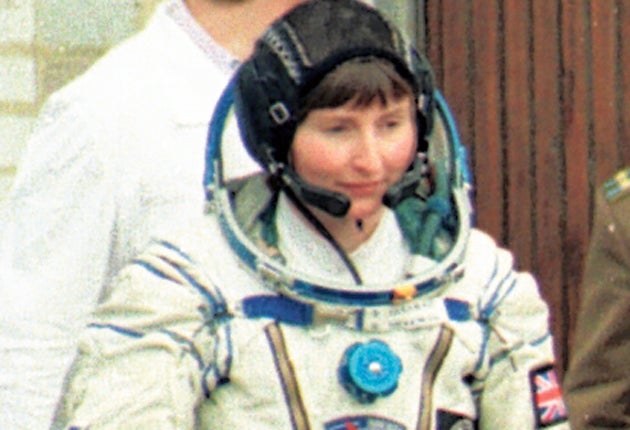The Timeline: Britain in space

1933
The British Interplanetary Society is founded. Its work throughout the 1930s included proposing a multi-stage rocket for Moon landings, and because it suggested that a cabin would have to rotate to provide artificial gravity, the BIS is considered to have invented the first instrument for space travel.
1962
Ariel 1, the first British satellite, is launched by Nasa on 26 April. Ariel was a British satellite research programme conducted between 1962 and the1980s which saw six satellites launched. The programme was conducted by the Science Research Council and made the UK the third country to operate a satellite.
1971
Britain officially enters the space race. A Black Arrow rocket is launched at Woomera, Australia, the first successful orbital launch to be conducted by the UK. Within minutes, it had successfully placed a Prospero satellite manufactured by the British Aircraft Corporation into low Earth orbit. The launch was conducted by scientists from the Royal Aircraft Establishment, which had been working on the British space programme since the late 1950s.
1985
The British National Space Centre is established, a government body that co-ordinated civil space activities for the UK. The Bnsc operated as a voluntary partnership of 10 British government departments, agencies and research councils and focused on space science, Earth observation, satellite telecommunications, and global navigation, though it had a policy against human space flight. On 1 April 2010, it was replaced by the UK Space Agency.
1991
Helen Sharman becomes the first Briton in space, visiting the Mir space station aboard Soyuz TM-12, which launched on 18 May 1991. Before flying, Sharman spent 18 months in intensive flight training in Star City in Russia. A British person has yet to land on the Moon.
2003
Beagle 2, the British-led effort to land on Mars, is launched. Controlled from the National Space Centre in Leicester, contact was lost six days before its scheduled entry into the atmosphere, and it is not known for certain whether it reached the Martian surface.
2004
On 27 September, Richard Branson announced that Virgin would sponsor SpaceShipOne's X Prize flights and that, if successful, Virgin Galactic would finance the design and build of a fleet of commercial spacecraft that will take thousands of people into space.
2010
Surrey Satellite Technology announces that a fleet of British-built satellites made from laptop components is to be sent into orbit in 2012 to map the surface of the Earth. Despite costing £100m, the project will make money by selling time on the cameras to countries which cannot afford their own satellite programme.
Subscribe to Independent Premium to bookmark this article
Want to bookmark your favourite articles and stories to read or reference later? Start your Independent Premium subscription today.

Join our commenting forum
Join thought-provoking conversations, follow other Independent readers and see their replies